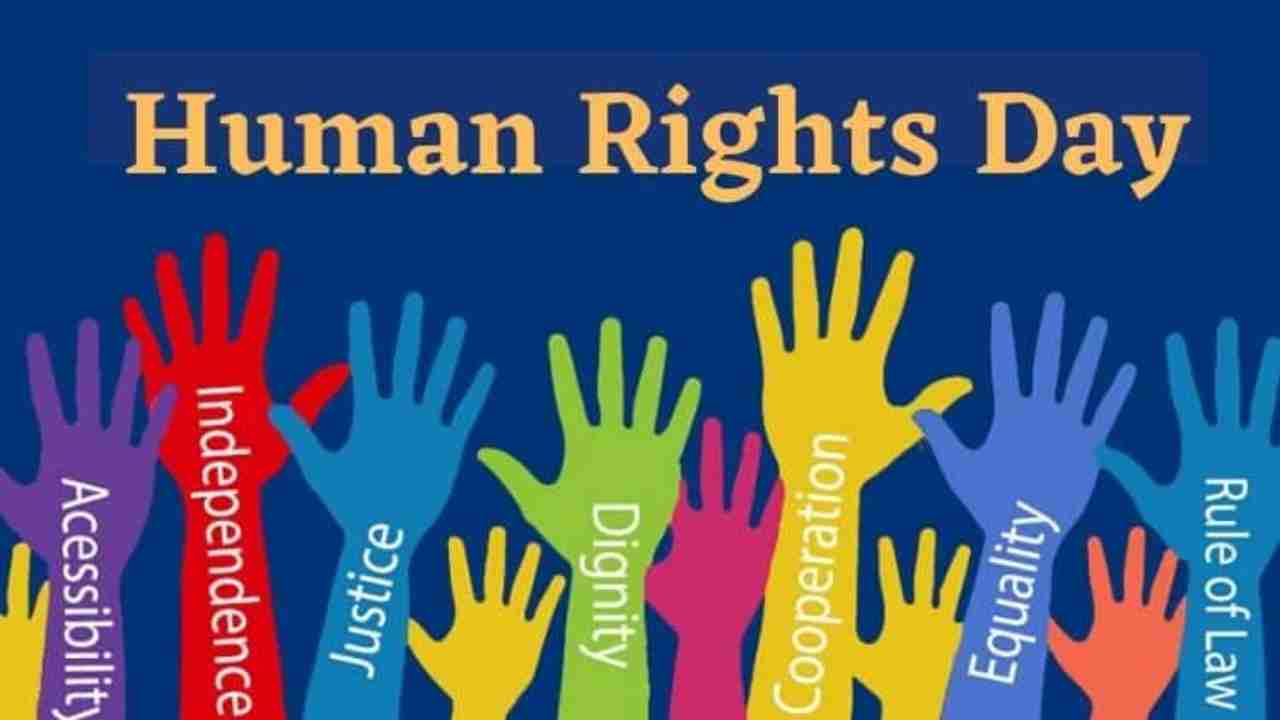
Human rights are under assault…. We must stand up for all rights — always.”
— UN Secretary-General António Guterres
2024 Theme: Our Rights, Our Future, Right Now.
United Nations
(December 10, 2024) — Human Rights Day is observed annually around the world on 10 December. It commemorates the anniversary of one of the world’s most groundbreaking global pledges: the Universal Declaration of Human Rights (UDHR). This landmark document enshrines the inalienable rights that everyone is entitled to as a human being — regardless of race, colour, religion, sex, language, political or other opinion, national or social origin, property, birth or other status.
The Declaration was proclaimed by the United Nations General Assembly in Paris on 10 December 1948 and sets out, for the first time, fundamental human rights to be universally protected.
As a “common standard of achievement for all peoples and all nations”, the UDHR is a global blueprint for international, national, and local laws and policies and a bedrock of the 2030 Agenda for sustainable development.
It is available in 577 languages, from Abkhaz to Zulu, making the UDHR the most translated document in the world.

Our Rights, Our Future, Right Now.
Human rights can empower individuals and communities to forge a better tomorrow. By embracing and trusting the full power of human rights as the path to the world we want, we can become more peaceful, equal and sustainable.
This Human Rights Day we focus on how human rights are a pathway to solutions, playing a critical role as a preventative, protective and transformative force for good. As UN Secretary-General António Guterres has said, “Human rights are the foundation for peaceful, just, and inclusive societies.”
This year’s theme is a call to acknowledge the importance and relevance of human rights in our everyday lives. We have an opportunity to change perceptions by speaking up against hate speech, correcting misinformation and countering disinformation. This is the time to mobilize action to reinvigorate a global movement for human rights.
What Happened to Upholding Human Rights?
D.D. Guttenplan / The Nation
(December 10, 2024) — Today is Human Rights Day, the anniversary of the adoption of the Universal Declaration of Human Rights by the United Nations, enshrining rights and freedoms that belong to every human being.
At the time, the United States voted in favor of the Declaration. We even helped draft it.
So Why Aren’t We Upholding It?
Over the last decade, the global state of human rights has gone from worrying to outright alarming. The impact of climate change, driven by corporate greed and the refusal of those in power to invest directly in protecting our planet, has been devastating — resulting in massive loss of life due to unprecedented weather events, an increase in climate-related migration, and the exacerbation of existing harm to marginalized peoples.
The rise of far-right governments and the policies they’ve enacted across the globe have threatened the rights of life, health, safety, and cultural identities.
The United States military-industrial complex has directly contributed to the destruction of civilian lives and created immense humanitarian crises in the Middle East and across the Global South. And without an independent, free press, the average person wouldn’t know about any of it.
As a subscriber to The Nation, you’ve helped us raise the alarm about these global attacks on human rights — and speak truth to power about what’s happening, why it’s happening, who’s putting it into action…and maybe even more importantly, who’s fighting back.
This is the time when independent media goes to work, and when a free press matters more than ever. The Trump administration has set out a roadmap for destroying the rights we once committed to upholding as universal — not just here in the United States, but around the world.
People can’t stand up for their rights unless they know what those rights are, why they matter, and how and when they’re at risk. For 160 years, The Nation has been informing and equipping our readers with the historical context and critical understanding they need to fight for their rights. With your support, The Nation can continue to empower readers to show up for justice, equality, and human rights for everyone.
As a historian, a journalist, and a firm believer in the power of an informed public to create meaningful change, I’ve seen firsthand how The Nation’s work has equipped readers with a more profound understanding of events, ideas, and history, and turned that understanding into galvanized, passionate action. Your subscription is proof that you believe, as I do, that free, independent publications like The Nation will help us course-correct to once again commit to upholding human rights.
D.D. Guttenplan is the editor of The Nation.